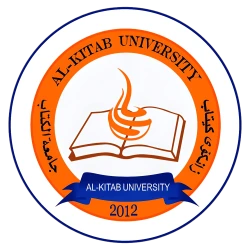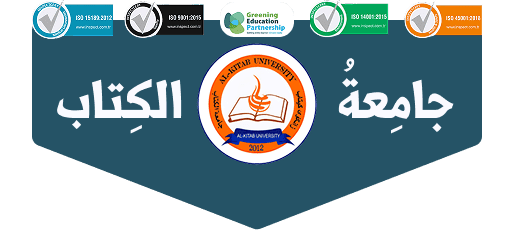al-kitab university
About Us
about the University
Al-Kitab University was established as a university college in 2012, initially offering three departments: Computer Engineering, Law, and Financial Sciences and Banking, following approval from the Ministry of Higher Education and Scientific Research (ref. no. 1655, dated 26 March 2013). On 29 August 2018, the institution was officially elevated to Al-Kitab University, expanding to include various new colleges, such as Dentistry, Pharmacy, Administrative and Financial Sciences, Engineering, Education, Medical Techniques, Engineering Techniques, Law, and Nursing, under the approval of the Ministry (ref. no. 10616).
Located in Altun-Kopri, Kirkuk Governorate, Al-Kitab University now consists of 12 colleges and 59 departments. The campus features 200 lecture halls, 160 laboratories, a teaching hospital, student and faculty dormitories, two sports fields, indoor sports facilities, restaurants, a swimming pool, a conference hall, a mosque, and green spaces. With 16,022 students and 1,074 academic staff, the university is a member of the Association of Arab Universities and has partnerships with both local and international universities.
- Founded in 2012
- Sustainability focus
- Modern facilities
- Global partnerships
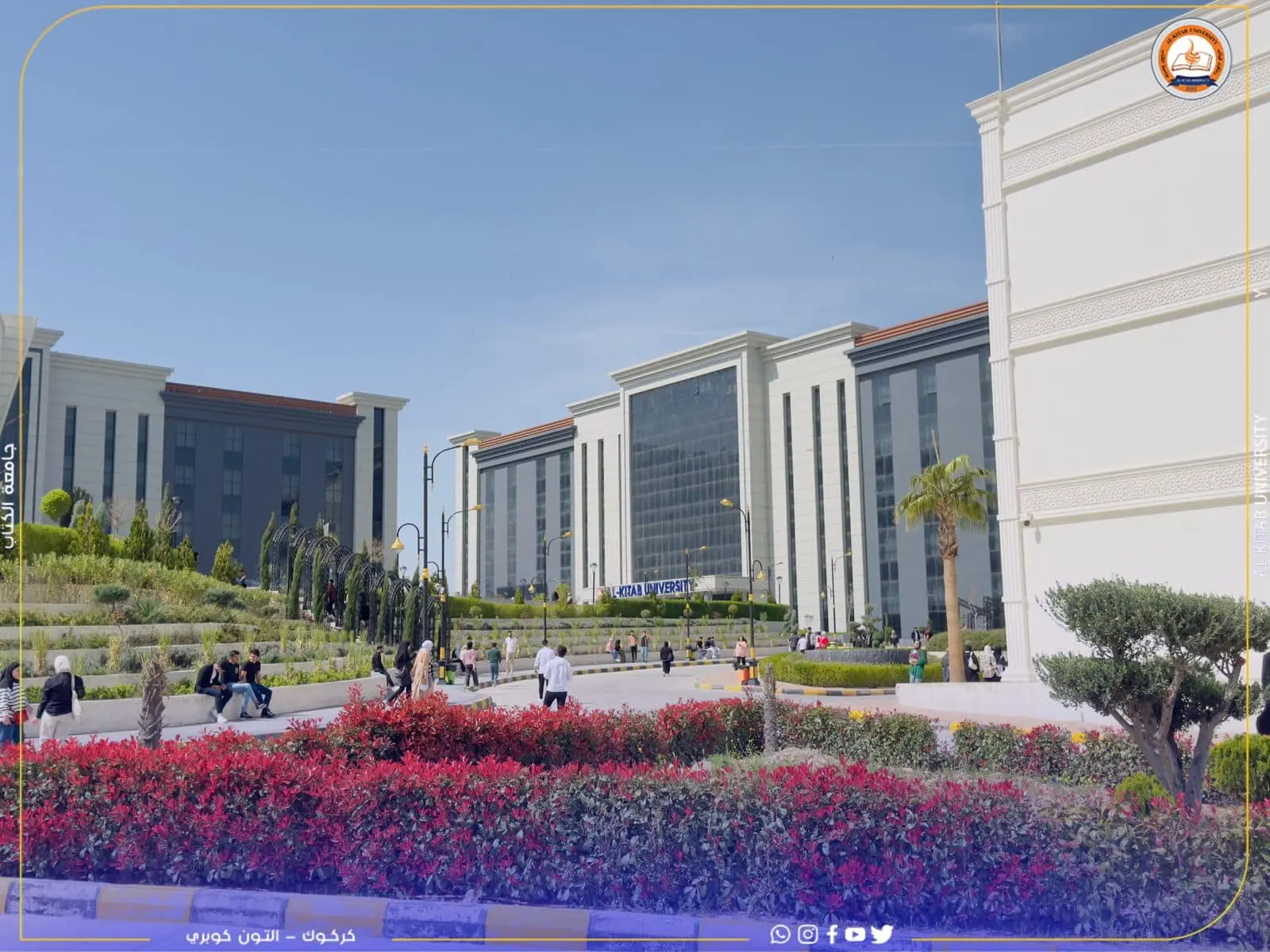
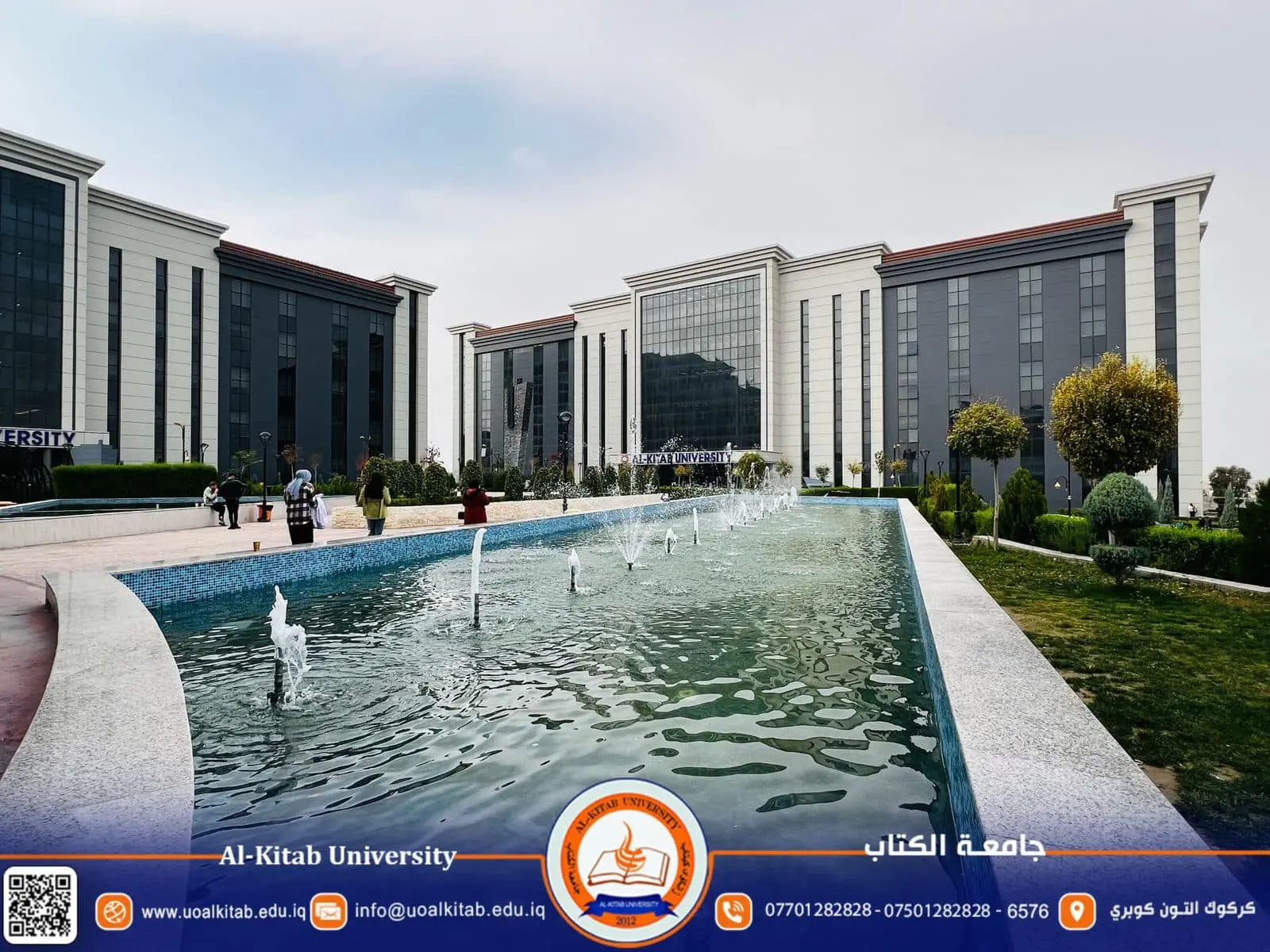
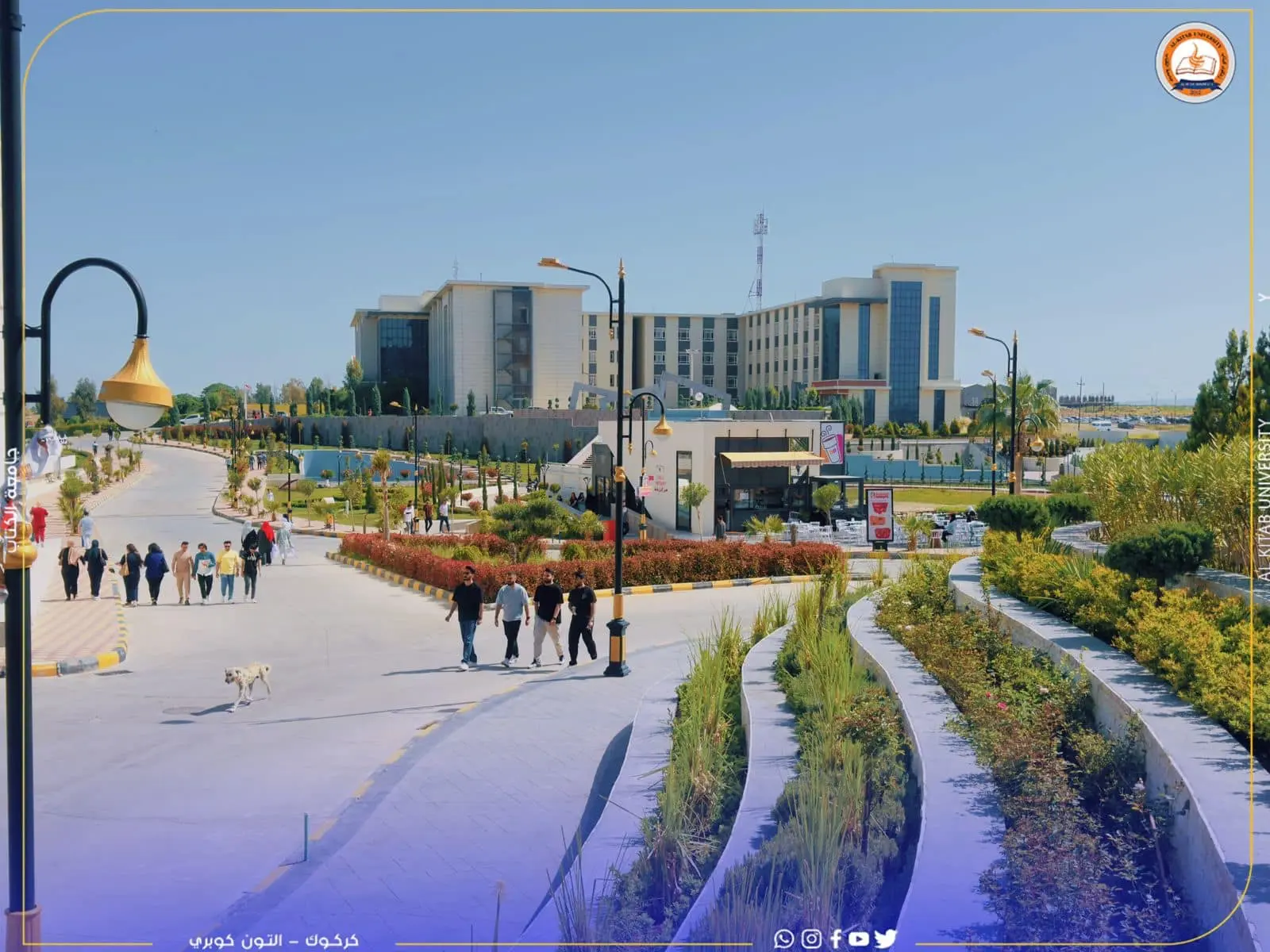
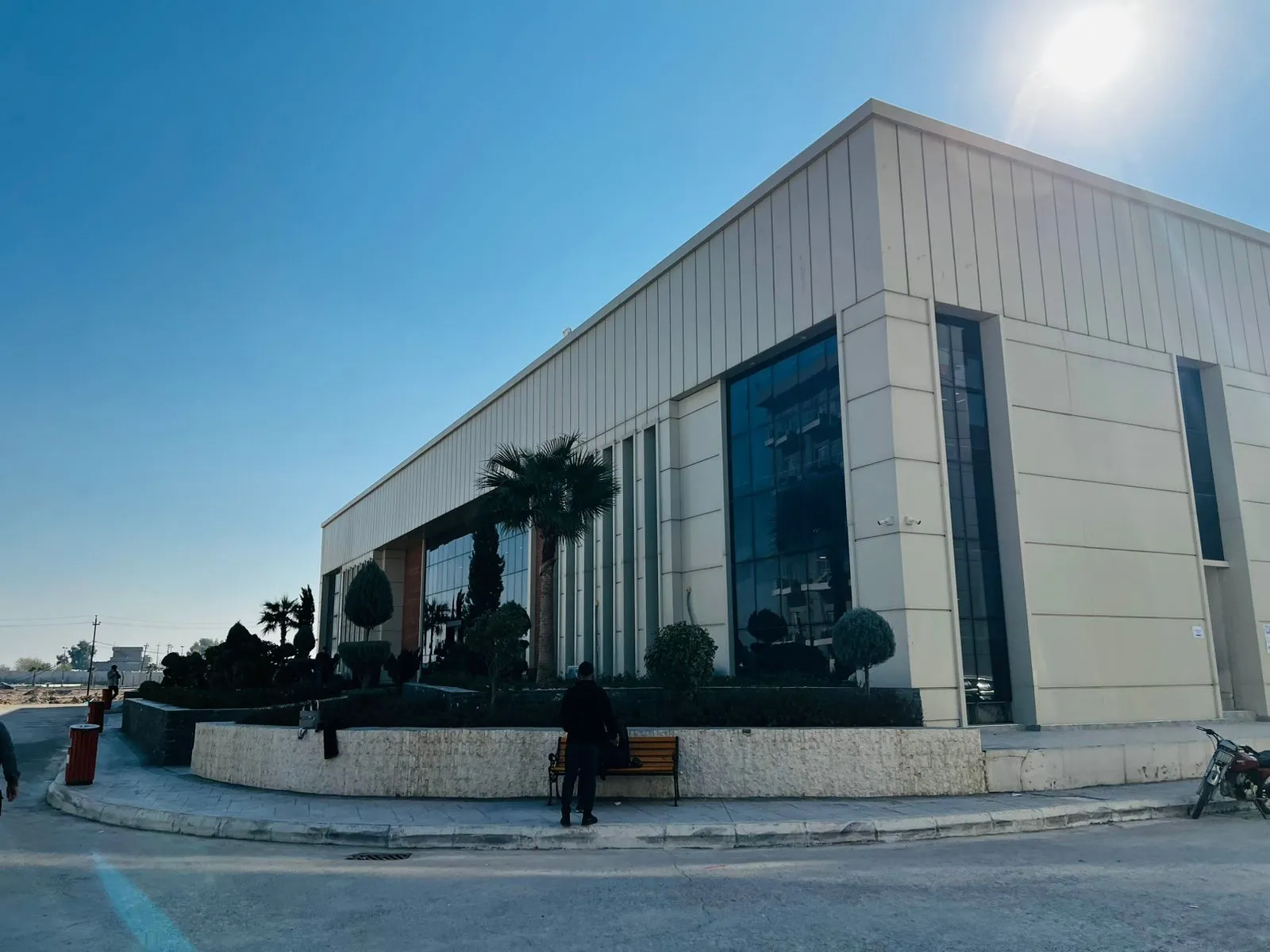
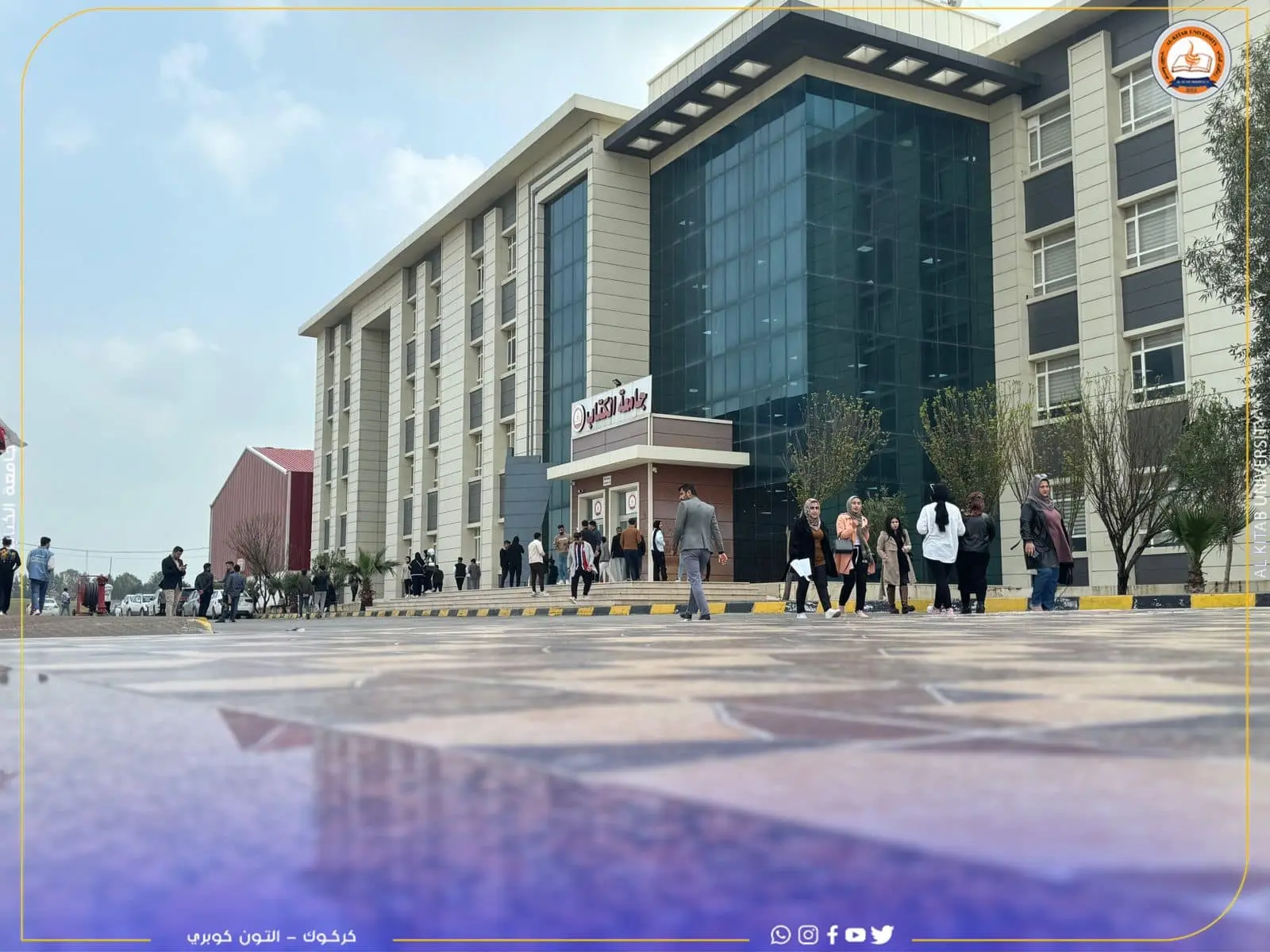
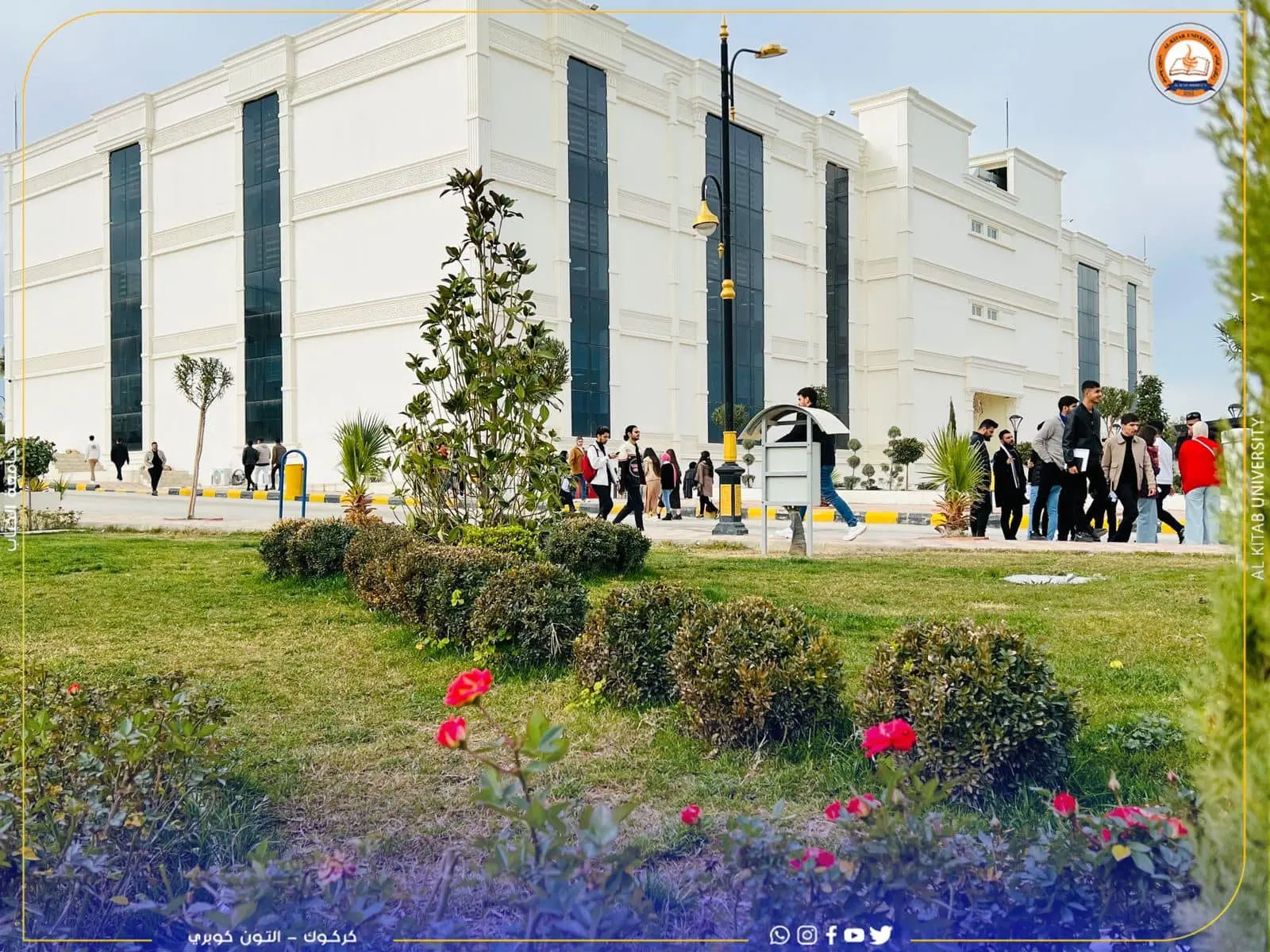
- Vision
- message
- goals
Vision of Al-Kitab University
Leadership, excellence, and innovation as the foundation for the university’s growth and future development.
Message of Al-Kitab University
Al-Kitab University is committed to being a leading and distinguished university locally and regionally, fostering an appropriate educational and pedagogical atmosphere for students, and ensuring its growth and development in the future.
University Goals
To provide the highest quality of knowledge in various pure and human sciences to its students.
To develop students’ intellectual, scientific, and social capacities to prepare and qualify them to become leaders in their future fields of work.
To contribute to the enrichment of human knowledge through discoveries and scientific research in joint cooperation with leading scientific and research institutions around the world.
To play a distinguished role in developing higher education and human resources in Iraq by linking academic and professional plans with the emerging requirements of the labor market.
To ensure quality education for all according to various pathways and to enhance learning opportunities.
To have the university play a role in promoting sustained and inclusive economic growth, full and productive employment, and decent work for all.
To have the university play an important and effective role in promoting peaceful and open societies for sustainable development.
To ensure the university is among those committed to green education, a clean environment, optimal energy consumption, and alternative energy sources.
